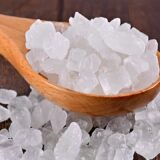Top 12 Ayurvedic Medicines & Remedies for Deep Detoxification
Ayurveda, the ancient Indian system of medicine, has long emphasized the importance of detoxification for maintaining optimal health and wellness. Rooted in the belief that the body is governed by three fundamental energies or doshas—Vata, Pitta, and Kapha.
Ayurveda views detoxification as a means to restore balance to these doshas and eliminate toxins, known as Ama, from the body. These toxins, which accumulate due to poor diet, stress, environmental pollutants, and unhealthy lifestyle choices, can disrupt the body’s natural equilibrium and lead to various health issues.
Ayurvedic detoxification is not just about cleansing the physical body; it also addresses mental and emotional well-being. By removing toxins and rebalancing the doshas, Ayurveda aims to rejuvenate the system, improve digestion, boost energy levels, and enhance mental clarity. This holistic approach makes Ayurvedic detoxification a powerful tool for achieving overall health and vitality.
Importance of Detoxification in Ayurveda
Detoxification is a cornerstone of Ayurvedic medicine, as it addresses the root cause of many health problems: the accumulation of toxins. Here’s why detoxification is so crucial in Ayurveda:
- Removes Toxins (Ama): Ama is the toxic byproduct of incomplete digestion. When the digestive fire (Agni) is weak, food is not properly metabolized, leading to the formation of Ama. This sticky, harmful substance can clog the body’s channels (Srotas), impairing circulation and leading to disease.
- Rebalances the Doshas: Each individual has a unique constitution (Prakriti), which is a combination of the three doshas. Imbalances in these doshas can lead to physical and mental health issues. Detoxification helps restore harmony to the doshas, promoting overall well-being.
- Improves Digestion, Boosts Energy, and Enhances Mental Clarity: By cleansing the body of toxins, Ayurvedic detoxification strengthens the digestive system, increases energy levels, and clears the mind, allowing for better focus and emotional stability.
Popular Ayurvedic Herbs and Medicines for Detox
Ayurveda relies heavily on the use of herbs and natural remedies to support detoxification. Here are some of the most effective Ayurvedic herbs for detox:
1. Triphala
Triphala is a combination of three fruits: Amla (Indian gooseberry), Haritaki (Terminalia chebula), and Bibhitaki (Terminalia bellirica). Known for its antioxidant properties, it supports digestion, enhances the body’s natural elimination process, and helps in the removal of accumulated toxins. Triphala is also known to promote healthy weight management by improving digestion and absorption.
- How it Works: Triphala helps balance the three doshas (Vata, Pitta, and Kapha) and promotes digestive health by stimulating the bowels, encouraging regular elimination. It has mild laxative properties, which aid in flushing out toxins, particularly from the colon. Regular use of Triphala can enhance metabolism, thus supporting detoxification at a deeper level.
2. Turmeric (Curcuma longa)
Turmeric is renowned for its anti-inflammatory, antioxidant, and antimicrobial properties. It helps cleanse the liver, purify the blood, and support the body’s natural detoxification processes. Additionally, it is beneficial for skin health, joint pain relief, and reducing the effects of oxidative stress.
- How it Works: Curcumin, the active compound in turmeric, stimulates bile production in the liver, which is essential for the digestion and breakdown of fats. It enhances liver function, promotes the release of toxins, and helps prevent the buildup of harmful substances. Turmeric also purifies the blood, improves circulation, and supports overall detox by cleansing the body at a cellular level.
4. Ashwagandha (Withania somnifera)
Ashwagandha, often called the “king of adaptogens,” helps reduce stress and anxiety while rejuvenating the body. It supports hormonal balance, enhances energy levels, and improves mental clarity. This herb is particularly useful for detoxifying the body’s internal systems by relieving the burden of chronic stress, which can lead to toxin accumulation.
- How it Works: By regulating cortisol levels, Ashwagandha helps reduce the physical and emotional effects of stress, thus preventing the internal buildup of toxins. It supports the adrenal glands, aids in reducing inflammation, and strengthens the immune system, all of which contribute to detoxification. Ashwagandha also enhances overall vitality and rejuvenates both the mind and body, promoting a balanced, toxin-free system.
5. Neem (Azadirachta indica)
Neem is a powerful blood purifier with antimicrobial, anti-inflammatory, and antifungal properties. It has been used for centuries in Ayurvedic practices to detoxify the body, cleanse the skin, and improve liver function. It is also helpful in reducing the effects of allergies, improving oral health, and purifying the blood.
- How it Works: Neem works by cleansing the bloodstream and eliminating toxins through its purifying effect on the liver and kidneys. It helps regulate blood sugar levels, improves skin conditions like acne or eczema, and detoxifies the digestive system. Neem’s antibacterial properties also protect the body from harmful pathogens, supporting long-term wellness and detoxification.
6. Ginger (Zingiber officinale)
Ginger is a potent herb for aiding digestion, stimulating metabolism, and promoting healthy circulation. It’s known for its ability to relieve nausea, improve appetite, and help clear accumulated toxins from the body. Ginger also helps to balance the doshas and is particularly beneficial for Pitta and Kapha types.
- How it Works: Ginger increases the production of digestive enzymes and bile, which improves digestion and helps break down toxins in the digestive tract. It also promotes blood circulation, allowing toxins to be expelled through sweat and urine. Ginger has natural anti-inflammatory properties that soothe digestive issues and help reduce bloating, making it an excellent herb for overall detox.
7. Brahmi (Bacopa monnieri)
Brahmi is an herb traditionally used to enhance cognitive function, reduce stress, and promote mental clarity. It is particularly beneficial for detoxifying the mind, improving memory, and relieving anxiety. This herb also supports the nervous system by reducing oxidative stress, which is important for mental well-being.
- How it Works: Brahmi calms the nervous system, improving focus and mental clarity, which is especially helpful for those experiencing emotional or psychological stress. It aids in balancing the brain’s neurotransmitters, thus supporting mental detoxification. By reducing the impact of stress and enhancing cognitive functions, Brahmi helps clear mental blockages and promotes a peaceful mind.
8. Coriander (Coriandrum sativum)
Coriander is commonly known for its ability to detoxify the body by removing heavy metals and harmful chemicals. It is a natural diuretic, promoting kidney health and the elimination of waste through urine. Coriander also helps support digestion and alleviate bloating and indigestion.
- How it Works: Coriander stimulates the digestive system and helps remove toxins from the gastrointestinal tract. Its ability to bind with and flush out heavy metals such as mercury and lead makes it an essential herb for detoxification. Coriander also helps improve circulation and liver function, supporting the body’s overall ability to detoxify efficiently.
9. Guduchi (Tinospora cordifolia)
Guduchi, also known as Giloy, is an herb that acts as an immunity booster, detoxifier, and purifier. It helps to improve the function of the liver, kidneys, and respiratory system. Guduchi is highly regarded for its ability to remove toxins from the body while strengthening the immune system.
- How it Works: Guduchi enhances liver function by supporting the body’s natural detoxification process, especially when it comes to purging waste from the blood and tissues. It is also known to increase the production of white blood cells, which help in fighting off infections and neutralizing harmful pathogens. By improving circulation, Guduchi promotes the elimination of toxins through the skin and other excretory systems.
10. Fennel (Foeniculum vulgare)
Fennel seeds are widely used for digestive health and detoxification. Known for their carminative properties, fennel helps reduce bloating, gas, and indigestion. It is also beneficial for flushing out toxins from the digestive tract and supporting the overall process of digestion.
- How it Works: Fennel seeds stimulate the secretion of digestive juices, promoting the breakdown of food and preventing the accumulation of waste. It acts as a mild diuretic, helping to expel toxins through urine. Fennel’s antioxidants and antimicrobial properties help cleanse the digestive system, improve bowel regularity, and reduce inflammation in the gut, making it an ideal herb for detox.
11. Shatavari (Asparagus racemosus)
Shatavari is an adaptogenic herb that supports the reproductive system and promotes balance. It is often used by women for hormone regulation, fertility, and to improve digestive health. Shatavari is also helpful in detoxifying the body by soothing the digestive system and eliminating excess toxins.
- How it Works: Shatavari nourishes and detoxifies the digestive tract by stimulating bile production and improving the absorption of nutrients. It has anti-inflammatory properties that help reduce toxins that accumulate in the gastrointestinal system. Shatavari also helps regulate blood sugar levels, and its mild diuretic properties help flush out toxins through urine. This herb is particularly useful in maintaining long-term digestive and hormonal balance, promoting overall detoxification.
12. Aloe Vera (Aloe barbadensis miller)
Aloe vera is widely known for its soothing properties, particularly for digestive health. It’s a natural detoxifier, known for its ability to cleanse the gastrointestinal tract, improve skin health, and reduce inflammation in the body. Aloe vera is also effective in treating constipation and purging accumulated waste from the digestive system.
- How it Works: Aloe vera’s detoxification process begins by soothing the digestive tract and ensuring the smooth flow of bowel movements, which helps remove accumulated waste. It also reduces internal inflammation, making it easier for the body to eliminate toxins through the skin, kidneys, and colon. Aloe vera’s high water content also helps hydrate the body, supporting the natural detoxification processes that occur daily.
Top 5 Ayurvedic Detoxification Therapies
Ayurveda offers a variety of techniques for detoxification, ranging from intensive therapies to simple dietary adjustments.
1. Vamana (Therapeutic Vomiting):
- Indications: Vamana is often recommended for individuals suffering from chronic respiratory issues, allergies, asthma, or excessive mucus production. It is also beneficial in conditions like obesity and digestive disturbances associated with an excess of Kapha.
- Procedure: The process begins with the administration of herbal preparations to loosen and soften the accumulated toxins. After a period of preparation, the patient is induced to vomit in a controlled environment, allowing the body to expel the unwanted materials.
- Benefits: It clears the lungs, reduces heaviness, and improves overall respiratory function. Additionally, it aids in weight management and enhances the digestive process.
2. Virechana (Purgation):
- Indications: Virechana is typically advised for individuals with conditions involving excess Pitta, such as inflammatory diseases, skin rashes, gastritis, ulcers, or jaundice. It can also be useful for individuals suffering from digestive problems like acidity and indigestion.
- Procedure: The process involves preparatory treatments, including the use of ghee or herbal oils to lubricate the digestive tract. After this, purgative herbs are administered to facilitate bowel movements and cleanse the body.
- Benefits: By eliminating toxins from the digestive system, Virechana improves liver function, supports the detoxification process, and helps to restore the balance of Pitta in the body, thus promoting better digestion and absorption of nutrients.
3. Basti (Medicated Enema):
- Indications: Basti is primarily beneficial for individuals with Vata imbalances, such as those experiencing constipation, dry skin, joint pain, or neurological disorders. It is also used to support detoxification and improve the overall functioning of the gastrointestinal system.
- Procedure: Depending on the individual’s condition, either oil-based or water-based decoctions are introduced through the rectum. These solutions are designed to penetrate deep into the tissues and cleanse the body from within.
- Benefits: Basti helps in reducing excess Vata, improves bowel movements, nourishes the tissues, and supports the immune system. It also enhances mental clarity, alleviates pain, and promotes overall well-being.
4. Nasya (Nasal Therapy):
- Indications: Nasya is indicated for those with imbalances in the head and neck region, including sinusitis, migraine, allergies, and mental fatigue. It also helps to alleviate tension, stress, and promote clarity of thought.
- Procedure: The patient is positioned in a comfortable position, and a combination of herbal oils, powders, or juices is introduced into the nostrils. The treatment can be enhanced with massage and steam therapy for greater efficacy.
- Benefits: Nasya promotes clear sinuses, relieves headaches, and reduces mental fog. It also supports respiratory health, balances the nervous system, and enhances cognitive function, improving focus and memory.
5. Raktamokshana (Bloodletting):
- Indications: Raktamokshana is recommended for individuals with skin diseases like eczema, acne, or psoriasis, as well as those suffering from blood disorders, high blood pressure, or conditions caused by an excess of Pitta.
- Procedure: Bloodletting is performed through various methods such as venesection or leech therapy, where a small amount of blood is removed from the body in a controlled manner. This helps to purify the blood and balance Pitta dosha.
- Benefits: It helps detoxify the body by removing accumulated toxins from the bloodstream, improves skin health, and can provide relief from inflammatory conditions. It also supports the body’s ability to regenerate and restore balance.
These therapies, when done under expert supervision, are essential for maintaining health and wellness according to Ayurvedic principles, targeting the root causes of imbalances in the body and promoting long-term well-being.
Benefits of Panchakarma:
- Toxin Elimination: Helps expel accumulated toxins from various parts of the body, improving overall health.
- Rejuvenation: Promotes revitalization and balances the doshas (the energies within the body).
- Restoration of Balance: By cleansing the body, it restores balance to the doshas and can reduce stress, improve digestion, and support immunity.
Panchakarma is generally practiced under the supervision of a qualified Ayurvedic practitioner, as it involves specific herbal formulations, techniques, and lifestyle modifications tailored to an individual’s constitution and health conditions.
Dietary Adjustments for Body Detox
1. Emphasizing Light, Easy-to-Digest Foods:
- Kichari: This traditional Ayurvedic dish, made with a combination of rice and mung beans, is considered a perfect food for detoxification. It’s light yet nourishing, easy to digest, and balanced in terms of protein, carbohydrates, and fiber. It helps cleanse the digestive system while providing essential nutrients.
- Soups: Simple vegetable soups, especially those made with easily digestible vegetables like zucchini, carrots, and spinach, are gentle on the stomach and help hydrate the body during detox.
- Steamed Vegetables: Steaming vegetables breaks down the fiber, making them easier to digest, and preserves the nutrients. Common choices for detox include leafy greens, beets, and squashes.
2. Foods to Avoid:
- Heavy, Oily, and Processed Foods: These foods are harder for the body to digest and often lead to the buildup of Ama (toxins or waste) in the body. Foods like fried snacks, refined sugars, and processed meats can clog the digestive channels and worsen imbalances in the body.
- Dairy: While it can be soothing, dairy can sometimes create excess mucus and congestion, especially if it’s not easily digested (like full-fat or aged cheeses).
- Caffeine and Alcohol: Both can overstimulate the digestive system and lead to dehydration, which is counterproductive during detox.
3. Fasting and Cleansing
Intermittent Fasting:
- Purpose: Intermittent fasting is popular in Ayurveda because it gives the digestive system time to rest and rejuvenate. During fasting, the body shifts from digestion to detoxification, allowing it to eliminate toxins more effectively. This approach also balances Vata dosha by allowing the body to have periods of both activity (eating) and rest (fasting).
- How it Works: The most common form is eating within a specific window (e.g., 12-16 hours of fasting followed by 8-12 hours of eating). During fasting, it’s essential to drink plenty of water, herbal teas, and possibly some broth to maintain hydration and support the detox process.
Mono diet:
- Purpose: Eating only one type of food, such as kichari, for a few days is designed to simplify digestion and allow the body to focus on cleansing. A mono diet reduces the workload on the digestive system and provides it with a single, easy-to-digest nutrient source.
- How it Works: The food chosen for a mono-diet should be simple, non-inflammatory, and gentle on the stomach. It promotes detoxification by giving the digestive system a break from processing multiple foods, and it allows the body to focus on clearing out toxins.
Additional Tips for Supporting Detoxification:
- Hydration: Drinking warm water or herbal teas (like ginger or cumin tea) helps support the body’s natural detox processes and encourages the elimination of waste.
- Gentle Exercise: Light yoga, walking, or other forms of gentle movement can stimulate circulation and help eliminate toxins through sweat.
In Ayurveda, the diet and fasting protocols are tailored to an individual’s constitution and the imbalances they are experiencing. It’s always advisable to consult with an Ayurvedic practitioner before starting a detox program, as they can guide you on which methods would be most beneficial for your unique body type and health needs.

























